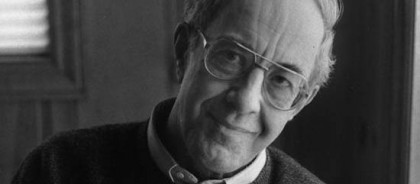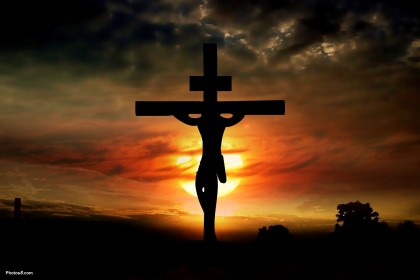Once again our country has been thrown into the “gay marriage” debate, and the stakes have seemingly never been higher now that the Supreme Court is involved. The reasons for the Catholic Church’s opposition to state-sanctioned same sex unions have been explained and written about extensively as of late (Check out Noe Perez’ “Why Marriage Cannot Be Redefined”), and I will not here reiterate what others have said far more eloquently and coherently than I ever could.
Recently I have been reading the "secret" journal of a certain priest who died almost twenty years ago. The priest, Father Henri Nouwen, who during his life wrote many books on spirituality and taught at Yale, Harvard and Notre Dame, struggled with strong, almost overwhelming, homosexual desires. He was, according to the modern understanding of the term, "in love" with one of the members of his community. There is no evidence that he ever broke his vow of celibacy. On the contrary, it seems as if he carried his cross of unrequited love to the end. There is nothing in his writings that hint at his attraction for the same sex. In fact, his struggle was not even revealed until after his death. Yet we can learn many lessons from him, not because he was “gay”, but because he understood the human heart, with its longings, its eccentricities, its fickleness, and its insatiable desire for love.

(As a side note, the purpose of this article is not in anyway to address the problem of homosexual clergy. I do not know if Father Nouwen had same sex-attractions before being ordained, or if they were a cross sent to him later in life. But I do know that getting fixated on this point would be to lose sight of all the things he accomplished and the incredible heroic courage he showed.)
Nouwen's journal, The Inner Voice of Love, was written during the darkest days of his life, when anguish and despair seemed to creep in from all sides, when his work as a priest seemed to lose its purpose, and when his whole existence seemed to echo the words of Christ from the Cross, “My God, My God, why have you forsaken me?” His writings convey so beautifully his nakedness, his powerlessness, his inability to love himself. Grappling with his own wretchedness, his base desires, his insecurities and his frustrations, his writings are an almost desperate self convincing of his worth in the eyes of God, his value as a beloved child, his dignity as a human. He is so relatable, his struggle, although unique in some ways, is altogether too common in others; it is the struggle of every person, it is the struggle to find Love, not love, Love. While reading his journal, I often felt as if he had taken a look into my own soul and written exactly what he had found there, to the point that it was sometimes almost startling. And, this is where it really hit me.
Our crosses come in different shapes and sizes, but they all rub the same way, that is to say, it hurts to carry them. It is easy to wag our fingers at homosexuals, to pit us against them, and to congratulate ourselves for being morally superior. But the reality is, we are all searching for the same thing. We all go down the wrong paths in search for love, the paths of promiscuity, drugs, alcohol, pornography, etc. Human history is stuck on repeat. But it seems as if somewhere along the way we deemed some paths “less bad” than others. Maybe you and I don’t struggle with same-sex attraction (by the grace of God, and not our own merit, mind you), but surely we can understand loneliness, despair, self-rejection, a bone-deep, all-consuming desire to love and be loved.

So, yes, “gay marriage” poses a serious threat, it is bad news for a whole host of reasons, but do we stop and consider what homosexual desires and tendencies do to the individual suffering in silence? Do we tend to those wounds of others made by the heavy cross of same-sex attraction, or are we so caught up with the “big picture” that we can no longer see individual faces? I think one major error we’ve made in the whole “gay marriage” debate, is that we’ve depersonalized it to the point of forgetting that this isn’t merely a matter of legislation, it’s a matter of souls. Laws will come and go, and although it is good and indeed necessary for us to fight for truth, we should remember something else Christ said while on the Cross, “I thirst”. How differently we would approach others if we let the reality of that statement sink in. Christ thirsts. He thirsts for every soul. And the fact that we have been given the gift of faith, and grace sufficient to sustain it, does not mean that Christ loves us more and others less. But it does mean we have a tremendous responsibility to share our faith, and the love of Christ, with others. We have a duty to pray for these suffering souls whom God so desperately wants in Heaven.
I’ll finish with one of my favorite quotes by Father Nouwen, “My deepest vocation is to be a witness to the glimpses of God that I have been allowed to catch”.

